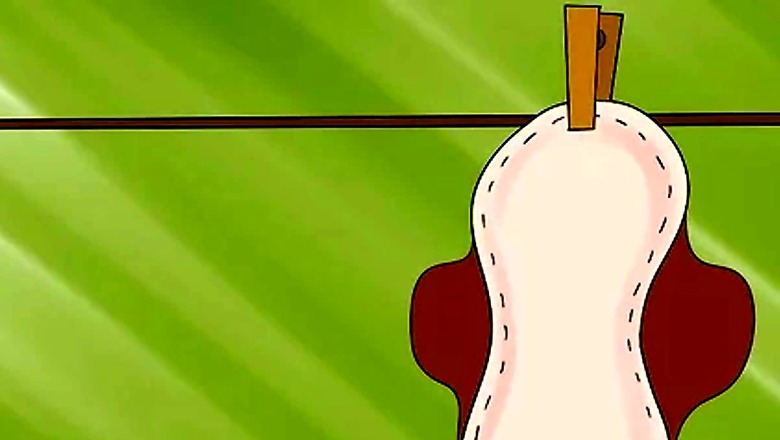
views
Menstruation is a natural part of life for many women, but it can have a significant impact on the environment. Disposable sanitary napkins, for instance, take between 500 and 800 years to biodegrade due to the specialised plastics and polymers used in their production. This prolonged decomposition period contributes to the accumulation of waste and pollution. In contrast, reusable cloth pads offer a more sustainable alternative, reducing the environmental footprint of menstruation.
The Environmental Impact of Disposable Sanitary Napkins
Disposable sanitary napkins are a significant contributor to waste and pollution. In India alone, the estimated annual waste generated from menstrual products is 113,000 tonnes. This waste is often improperly disposed of, leading to clogged drains and toilets worldwide. Furthermore, the production of disposable sanitary napkins involves the use of non-biodegradable plastics, which can cause harm to the environment and human health.
The Benefits of Cloth Pads
Cloth pads, on the other hand, are a viable and eco-friendly option. They are made from natural materials like cotton, which is biodegradable and healthy for women’s bodies. Cloth pads can be washed and reused multiple times, reducing the need for disposable products and the subsequent waste they generate. Additionally, cloth pads are often less expensive over the long-term for consumers, though there may be an upfront cost to consider.
Creative Solutions for Green Menstruation:
- Cloth Pad Initiatives:Organisations are working to make cloth pads more accessible to women. These initiatives involve converting old clothes into pads, reducing the cost and promoting sustainability.
- Menstrual Cup Adoption:Menstrual cups are another reusable option that can last up to 12 years. They are safe, easy to use, and can be washed and reused multiple times, reducing waste and environmental impact.
- Education and Awareness:Educating women about the environmental impact of disposable sanitary napkins and promoting the use of reusable products can lead to significant changes in behaviour. Public awareness campaigns and workshops can help destigmatize sustainable menstruation practices and encourage women to adopt eco-friendly alternatives.
- Policy Support:Governments and organisations can support sustainable menstruation by implementing policies that promote the use of reusable products and reduce waste. This can include providing access to menstrual products, especially in rural areas, and extending responsibility to manufacturers of sanitary pads.
- Community Engagement:Community-based initiatives, which empowers Adivasi women to design and create cloth pads, can help spread awareness and promote sustainable menstruation practices in local communities.
- Affordable Options:Affordable and reusable cloth pads can be made accessible by pricing them competitively and making them available through local shops and social media.
- Hygiene and Comfort:Cloth pads can be designed to be soft, easy to use, and washable, making them a healthier and more comfortable option compared to disposable sanitary napkins.
- Product Innovation:Innovative products with nearly 100% compostable and biodegradable sanitary pads can provide women and girls in rural villages and urban areas access to a sustainable solution.
- Access to Menstrual Products:Providing access to affordable and sustainable menstrual hygiene products (e.g., menstrual cloths, reusable pads, disposable pads, menstrual cups, and tampons) is key to improving menstrual health and hygiene
Conclusion
Green menstruation is not only a viable option but a necessary step towards reducing waste and pollution. By adopting reusable products like cloth pads and menstrual cups, women can significantly reduce their environmental footprint. Additionally, education, awareness, and policy support can help promote sustainable menstruation practices and create a more eco-friendly society.
(Inputs by Dr. Tejal Kanwar, Gynaecologist & Consultant at Ujaas- A menstrual health and hygiene management social enterprise)




















Comments
0 comment